Mangaluru: Apr 23: Any further delay in pre-monsoon rains in coastal Karnataka will surely push Mangaluru into deep water crisis as water at Thumbe vented dam, on which the city is dependent, will last only for next 18 days.
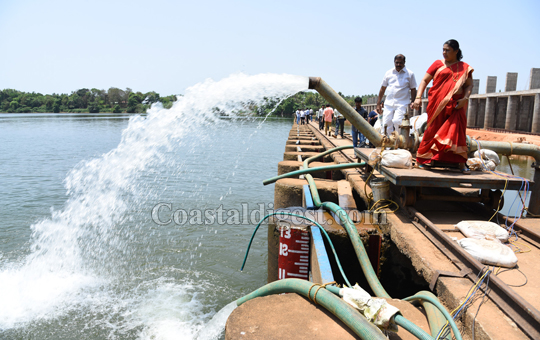
The Thumbe dam, which had enough water during the same time last year, is now facing severe shortage of water and its level is decreasing with every passing day.
On Saturday, when Mangaluru Mayor Harinath, along with other corporators, officials and representatives of industries visited the 13-foot high vented dam, the level of water storage stood at 7.9 feet with inflow of water reaching zero-level.
Speaking to media persons, the mayor called upon the citizens of Mangaluru to use water judiciously. He said that water storage at the Thumbe vented dam was enough for only 18 days' supply. “The water from AMR Hydro Power Project dam will be sufficient for an additional four to five days. The MCC has already initiated measures to supply water to the citizens on alternate days,” the mayor assured.
He said that farmers will be persuaded not to use the pump sets upstream. “A team, led by executive engineer Linge Gowda, has been constituted, and a drive will be started to check the use of pump sets. The team will ensure that water is not wasted. The Corporation has already stopped supplying water to construction sites. Water should not be sprinkled on the road to check dust,” he insisted.
The Mayor said that if there was any problem of shortage of water or case of water being wasted, then the public can contact the executive engineers, assistant executive engineers and junior engineers.
Speaking of supply of water, he said that the number of tankers to supply water to the areas that fail to get water has been increased from three to seven. The houses situated on narrow roads will get water in tankers mounted on three pick-up vehicles. Measures will be taken to supply water through tankers at the areas situated at elevated places, he assured.
“There was deficit in rainfall in Dakshina Kannada in 2015. Its impact is being felt this year. The district normally receives pre monsoon showers in April. This year, however, pre-monsoon shower too has failed. Last year, with the pre-monsoon shower, the water-level at the dam was overflowing on April 25. The water-level at Thumbe vented dam declines by three inches if the water is pumped once to supply to the citizens of Mangaluru,” Harinath explained.
The Mayor said that the MCC has initiated measures to drill six borewells in the areas where there is acute shortage of water. Two borewells have been completed at Vamanjoor and Pacchanady. “If the situation aggravates, then water will be drawn from all private borewells and other water sources within the city limits to supply it to the citizens of Mangaluru. The supply to industries will be stopped fully. In case of necessity, the district administration will be asked to make arrangements to release water from the dams situated at Subramanya, Hosmat and other places,” Mayor said.
The MCC supplies 2 MGD water to gram panchayats that are situated between Thumbe and Padil. The MCC is planning to purify the water to hand it over to the gram panchayats to take over the maintenance of water supply to Adyar, Pudu and Thumbe Gram Panchayats.
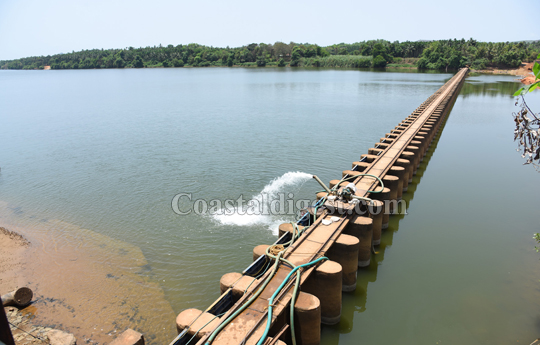
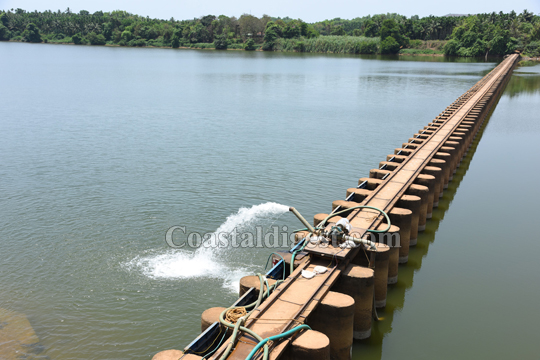
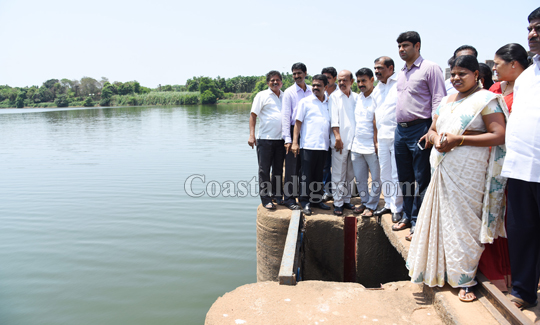
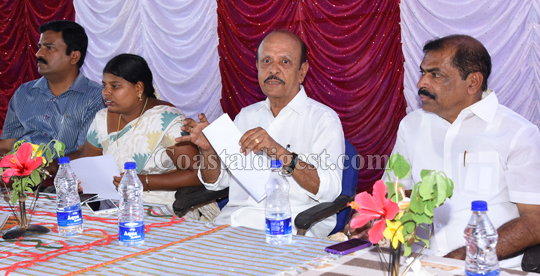





Comments
ONLY ALLAH CAN SAVE US.
Only ALLAH can save us from drought...
Dear Muslims....
I suggest to ask your local masjids to pray for rain...
ASK with ALLAH alone and never give any attributes to his CREATION.
ALLAH is the owner of this earth & ask with ALLAH as per the teachings of Prophet Muhammad pbuh... ALLAH is able to do all things. if he says BE and it will be... Dont look at the situation... Lets trust and ask with ALLAH in Full TRUST.
As QURAN says : It is ALLAH who sends the winds which stir up clouds which He spreads about the sky however He wills. He forms them into dark clumps and YOU see the rain come pouring out from the middle of them. When He makes it fall on those of His servants He wills, they rejoice. - QURAN 30:48
Lets PONDER on What QURAN speaks and THINK deeply about OUR CREATOR who sustains us by giving life on EARTH with his rainfall.
Subhanallah... Praise be to ALLAH.
here mangaloreans dont have water and congress want to finish yethinahole protect. if this succeed forget about the rain in coastal karnataka,
Add new comment